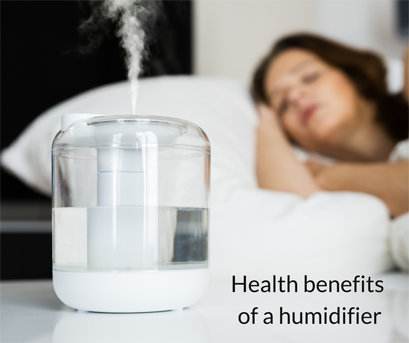Health benefits of a humidifier
February 7, 2022
Winter air is cool and dry, which can lead to cracked lips, dry sinuses, bloody noses, and more discomforts. Adding a humidifier to your home environment can help relieve some of these ailments, and offer other benefits during the winter months.
Humidifiers are devices that release water vapor or steam to increase moisture levels in the air (humidity). An ideal range for humidity in your home is 30% - 50%, and temporarily going as high as 60% to help relieve allergy or cold symptoms.
Humidifiers can assist in more restful sleep. Individuals prone to snoring or sleep apnea, are likely dealing with a constricted airway. Cold, dry air will increase mucus production in the respiratory system. By adding moisture to the air supply, it can mitigate phlegm and allow individuals to breathe easier throughout the night.
Air that’s low in humidity can also be a detriment to the body’s exterior, causing cracked, dry skin and brittle hair. Increasing the humidity during the winter months can protect sensitive skin from drying out offering relief for eczema and dandruff. A healthy humidity can offer brighter skin, less hair breakage and split ends, and hydrated lips.
Increasing humidity may even help save you a little money. Dry air can feel colder, whereas humid air tends to feel warmer, therefore people tend to turn up the heat when humidity levels are low.
Although useful, humidifiers can cause illness if they aren't maintained properly or if humidity levels stay too high for too long. Be sure to monitor the humidity levels and keep the humidifier clean. Dirty humidifiers can breed mold or bacteria. If you have allergies or asthma, talk to your medical provider before using a humidifier.
A few tips to keeping your humidifier clean include: using distilled or demineralized water, changing the water often, cleaning the water reservoir thoroughly every few days, and if the humidifier has a filter, changing it at least as often as the manufacturer recommends — and more often if it's dirty.
